Understanding Replacement Cost vs. Actual Cash Value Coverage in Florida
See How We're Different
or call us: 954-233-0733
When it comes to insuring your property, understanding the difference between Replacement Cost and Actual Cash Value coverage is crucial. These two types of coverage determine how much you will receive from your insurance company in the event of a loss. In this guide, we will delve into the details of these two types of coverage, their benefits, drawbacks, and how they apply in the state of Florida.
Defining Replacement Cost and Actual Cash Value
What is Replacement Cost?
Replacement Cost is a type of insurance coverage that pays the policyholder the cost of replacing the damaged property without any deduction for depreciation. This means that if your property is destroyed or damaged, the insurance company will pay you the current market price of a similar new item.
For instance, if you have a five-year-old television that gets damaged, the insurance company will pay you the cost of a brand new television of the same make and model, or one that is comparable if the exact model is no longer available. This type of coverage is generally more expensive than Actual Cash Value coverage due to the higher payout potential.
What is Actual Cash Value?
Actual Cash Value (ACV), on the other hand, is a type of insurance coverage that pays the policyholder the cost of replacing the damaged property, less any depreciation. This means that the insurance company will pay you the current market price of a similar item, minus the amount the item has depreciated since you bought it.
Using the same television example, if your five-year-old television gets damaged, the insurance company will pay you the cost of a new television of the same make and model, minus the amount the television has depreciated over the five years you've owned it. This type of coverage is generally less expensive than Replacement Cost coverage due to the lower payout potential.
Replacement Cost vs. Actual Cash Value in Florida
How Florida Law Treats Replacement Cost and Actual Cash Value
In Florida, the law does not mandate whether insurance companies must offer Replacement Cost or Actual Cash Value coverage. It is up to the individual insurance companies to decide which types of coverage they offer. However, if an insurance company does offer both types of coverage, they must clearly explain the difference to the policyholder.
Furthermore, Florida law requires insurance companies to offer a Replacement Cost coverage option for homeowners insurance policies. This means that if you are a homeowner in Florida, you have the option to choose Replacement Cost coverage for your home.
Choosing Between Replacement Cost and Actual Cash Value in Florida
When choosing between Replacement Cost and Actual Cash Value coverage in Florida, there are several factors to consider. One of the main factors is the cost of the coverage. As mentioned earlier, Replacement Cost coverage is generally more expensive than Actual Cash Value coverage. However, it also provides a higher payout in the event of a loss.
Another factor to consider is the age and condition of your property. If your property is relatively new and in good condition, you may prefer Replacement Cost coverage. This is because the depreciation deduction under Actual Cash Value coverage would be minimal. However, if your property is older and has depreciated significantly, Actual Cash Value coverage may be more cost-effective.
Benefits and Drawbacks of Replacement Cost and Actual Cash Value Coverage
Benefits of Replacement Cost Coverage
One of the main benefits of Replacement Cost coverage is that it provides a higher payout in the event of a loss. This can be especially beneficial if you have high-value items or if the cost of replacing your property has increased since you bought it.
Another benefit of Replacement Cost coverage is that it allows you to replace your damaged property with new items. This can be particularly advantageous if your property is older and has depreciated significantly.
Drawbacks of Replacement Cost Coverage
The main drawback of Replacement Cost coverage is its higher cost. Because it provides a higher payout, it is generally more expensive than Actual Cash Value coverage. This means that you will have to pay higher premiums if you choose this type of coverage.
Another potential drawback of Replacement Cost coverage is that it may lead to over-insurance. This is when the amount of insurance coverage you have exceeds the value of the property you are insuring. Over-insurance can lead to higher premiums without providing any additional benefits.
Benefits of Actual Cash Value Coverage
The main benefit of Actual Cash Value coverage is its lower cost. Because it provides a lower payout, it is generally less expensive than Replacement Cost coverage. This means that you can save money on your insurance premiums by choosing this type of coverage.
Another benefit of Actual Cash Value coverage is that it can be more cost-effective if your property has depreciated significantly. This is because the depreciation deduction can lower the amount of the payout, making the coverage more affordable.
Drawbacks of Actual Cash Value Coverage
The main drawback of Actual Cash Value coverage is that it provides a lower payout in the event of a loss. This can be disadvantageous if the cost of replacing your property has increased since you bought it.
Another potential drawback of Actual Cash Value coverage is that it may not provide enough coverage to fully replace your property. This can be particularly problematic if you have high-value items or if your property has appreciated in value.
Conclusion
Understanding the difference between Replacement Cost and Actual Cash Value coverage is crucial when insuring your property. By understanding these two types of coverage, you can make an informed decision that best suits your needs and budget.
Remember, the choice between Replacement Cost and Actual Cash Value coverage depends on various factors, including the cost of the coverage, the age and condition of your property, and your personal preferences. Always consult with a knowledgeable
insurance professional to help guide you in making the best decision for your situation.








